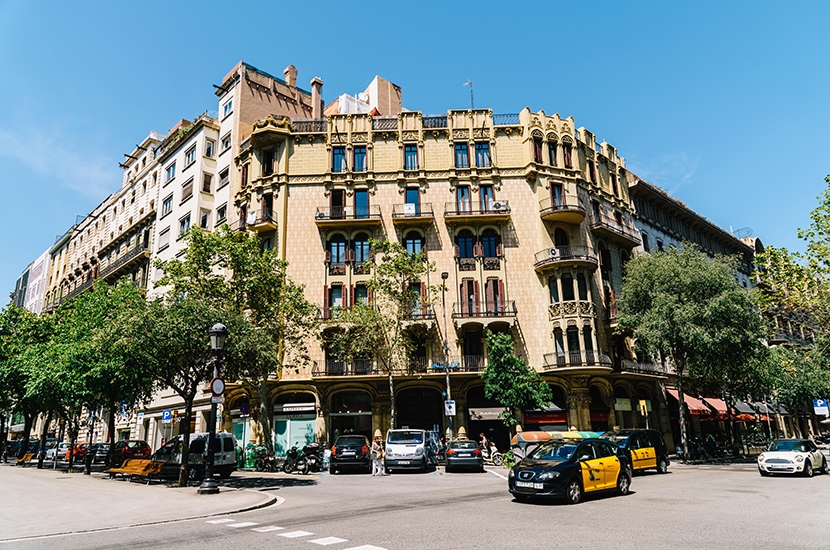I’ve never been to Barcelona, but Rupert Thomson makes it feel like an old friend. The hot, airless nights and the car engines, ‘exhaust fumes mingled with frangipani’ and beneath the smell of jasmine ‘the stale, slightly medieval smell of drains’. Cafés con leche and jugs of caipirinha with wedges of lime and crushed ice. The clutter of pink-and-white buildings and the port, ‘the masts of boats swaying and clicking in the offshore breeze, the sunlight glassy, dazzling’. In places, those buildings give way to dusty wastelands — ‘areas like this were common in Barcelona’.
The city of Thomson’s nostalgic 13th novel existed in the early 2000s, the financial crash looming like a stark white sail over it and its dark blue ribbon of sea. The book comprises three first-person novellas that are as propulsive as they are lyrical, the diverse characters loosely linked. In the first story, Amy, a middle-aged English divorcée who scrapes by running a gift shop in well-heeled Sarrià, recounts a feverish love affair with an undocumented Moroccan immigrant half her age. The prose drips with desire: ‘There was a stirring in me like a glass of water on a café table when a truck goes past. The way the surface of the liquid shudders’ — but the relationship is doomed. Racism takes bodily form in Amy’s xenophobic neighbor, Senyor Artes.
From Sarrià to the sleazy-cool beach resort of Castelldefels. The second story is narrated by Nacho, a boozy former jazz musician with an attractive Brazilian girlfriend, Cristiani. When we meet, he’s lying flat on his back in someone’s garden: ‘Everything’s floating, flowing. Brain, skin, lawn — it’s all the same.’ Together with Cristiani’s adolescent son, he frequents the local bar and develops a passion for FC Barcelona. He also befriends the sparkling soccer star Ronaldinho, and teaches him Spanish. Or does he? The circumstances become more bizarre as Nacho gets more sloshed.
There’s a beautiful rhythm to Thomson’s writing, the sentences rocking like waves. This is a book about dreams and delusions. In the third story, the bizarre tips over into the surreal. A literary translator in love with a friend who doesn’t love him back finds himself mixed up with a shady British businessman. There’s an ‘unearthly’ carpenter and an enchanting chest of drawers and mysterious bunches of keys. Events and emotions slip and slide until ‘everything was connected, but not in a good way’. Not in a good way if you’re living through it, but just fine if you’re the lucky reader.
This article was originally published in The Spectator’s UK magazine. Subscribe to the World edition here.

























